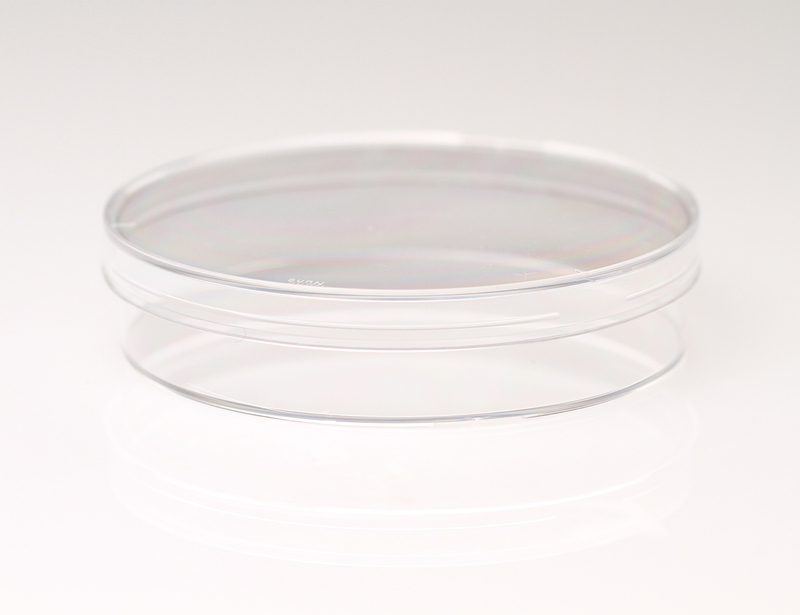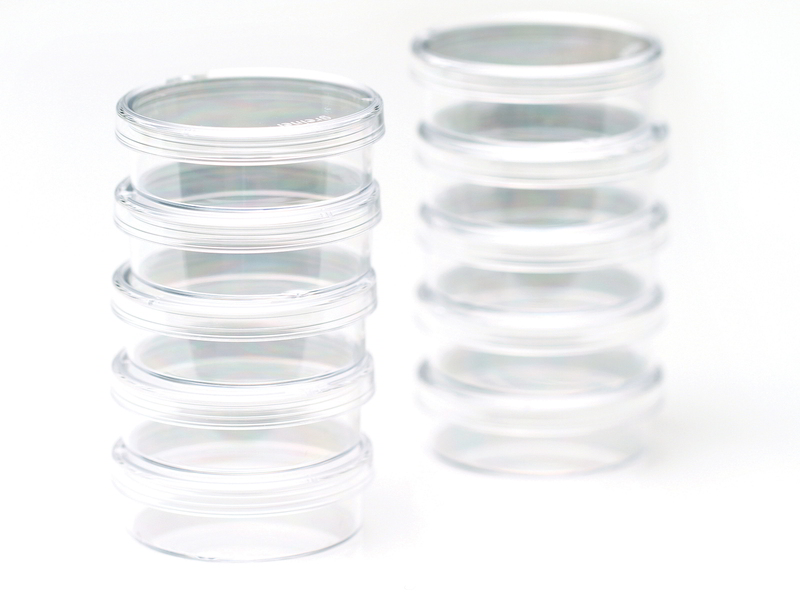35 mm Culture Dishes
35 mm culture dishes
概要
35 mm culture dishes, pre-tested for optimal colony growth without supporting anchorage-dependent cells in methylcellulose-based assays. They are manufactured from optical quality, thermally resistant, non-pyrogenic, non-toxic polystyrene.
Recommended for:
• Hematopoietic progenitor cultures in methylcellulose-based media (MethoCult™)
• Embryoid body formation from mouse embryonic and induced pluripotent stem cells
• Performing the neural colony-forming cell assay (NCFC)
Recommended for:
• Hematopoietic progenitor cultures in methylcellulose-based media (MethoCult™)
• Embryoid body formation from mouse embryonic and induced pluripotent stem cells
• Performing the neural colony-forming cell assay (NCFC)
Species
Human, Mouse, Rat, Non-Human Primate, Other
Application
Cell Culture, Colony Assay
技术资料
| Document Type | 产品名称 | Catalog # | Lot # | 语言 |
|---|---|---|---|---|
| Product Information Sheet 1 | 35 mm Culture Dishes | 27100, 27150 | 19A98311 or higher | English |
| Product Information Sheet 2 | 35 mm Culture Dishes | 27100, 27150 | 18M97945 or lower | English |
数据及文献
Publications (3)
Stem cells and development 2011 MAY
Efficient generation of nonhuman primate induced pluripotent stem cells.
Abstract
Abstract
Induced pluripotent stem (iPS) cells have great potential for regenerative medicine and gene therapy. Thus far, iPS cells have typically been generated using integrating viral vectors expressing various reprogramming transcription factors; nonintegrating methods have been less effective and efficient. Because there is a significant risk of malignant transformation and cancer involved with the use of iPS cells, careful evaluation of transplanted iPS cells will be necessary in small and large animal studies before clinical application. Here, we have generated and characterized nonhuman primate iPS cells with the goal of evaluating iPS cell transplantation in a clinically relevant large animal model. We developed stable Phoenix-RD114-based packaging cell lines that produce OCT4, SOX2, c-MYC, and KLF4 (OSCK) expressing gammaretroviral vectors. Using these vectors in combination with small molecules, we were able to efficiently and reproducibly generate nonhuman primate iPS cells from pigtailed macaques (Macaca nemestrina). The established nonhuman primate iPS cells exhibited pluripotency and extensive self-renewal capacity. The facile and reproducible generation of nonhuman primate iPS cells using defined producer cells as a source of individual reprogramming factors should provide an important resource to optimize and evaluate iPS cell technology for studies involving stem cell biology and regenerative medicine.
Cell stem cell 2010 NOV
Highly efficient reprogramming to pluripotency and directed differentiation of human cells with synthetic modified mRNA
Abstract
Abstract
Clinical application of induced pluripotent stem cells (iPSCs) is limited by the low efficiency of iPSC derivation and the fact that most protocols modify the genome to effect cellular reprogramming. Moreover, safe and effective means of directing the fate of patient-specific iPSCs toward clinically useful cell types are lacking. Here we describe a simple, nonintegrating strategy for reprogramming cell fate based on administration of synthetic mRNA modified to overcome innate antiviral responses. We show that this approach can reprogram multiple human cell types to pluripotency with efficiencies that greatly surpass established protocols. We further show that the same technology can be used to efficiently direct the differentiation of RNA-induced pluripotent stem cells (RiPSCs) into terminally differentiated myogenic cells. This technology represents a safe, efficient strategy for somatic cell reprogramming and directing cell fate that has broad applicability for basic research, disease modeling, and regenerative medicine. ?? 2010 Elsevier Inc.
Yearbook of Dermatology and Dermatologic Surgery 2008 DEC
Induced Pluripotent Stem Cell Lines Derived from Human Somatic Cells
Abstract
Abstract
Somatic cell nuclear transfer allows trans-acting factors present in the mammalian oocyte to reprogram somatic cell nuclei to an undifferentiated state. We show that four factors (OCT4, SOX2, NANOG, and LIN28) are sufficient to reprogram human somatic cells to pluripotent stem cells that exhibit the essential characteristics of embryonic stem (ES) cells. These induced pluripotent human stem cells have normal karyotypes, express telomerase activity, express cell surface markers and genes that characterize human ES cells, and maintain the developmental potential to differentiate into advanced derivatives of all three primary germ layers. Such induced pluripotent human cell lines should be useful in the production of new disease models and in drug development, as well as for applications in transplantation medicine, once technical limitations (for example, mutation through viral integration) are eliminated.




